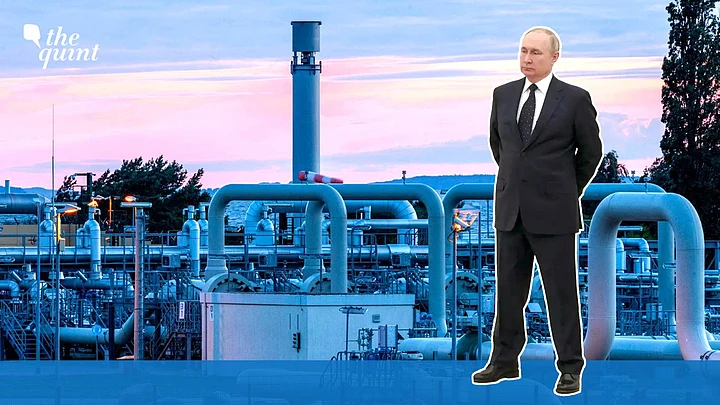Russia on Tuesday, 6 September, blamed the sanctions imposed by western countries over the invasion of Ukraine for not resuming in full its gas supplies to European countries.
Kremlin spokesperson Dmitry Peskov cited the sanctions "introduced against our country by western countries including Germany and the United Kingdom" for Russia's refusal to deliver gas via the Nord Stream 1 pipeline.
The Russian gas giant Gazprom said on 5 September that a formal warning had been forwarded to it by Russian regulators about the Portovaya compressor station. The warning stated that Portovaya station had violated safety requirements, and was a "hazardous production facility" that could no longer operate legally.
Why is this important? Because the gas that Germany, Europe's biggest consumer of Russian gas, receives through the Nord Steam 1 pipeline is pushed by this compressor.
European countries have been saying for weeks that Russia is weaponising energy to retaliate against the sanctions that have been slapped on it after the invasion of Ukraine.
This is not at all the first time that something like this is happening. Russia, on 27 April, stopped gas supplies to Bulgaria and Poland for rejecting the former's demand to settle payments in roubles. The same happened with the Netherlands and Finland.
How did matters escalate to this? It started last week when G7 countries agreed on a price cap on Russian oil in order to stop funding the Kremlin's war machine.
'Repairs' and the G7 Cap
Russia, on 31 August, stopped the flow of gas via Nord Stream 1 citing maintenance issues and the need to carry out repairs. The halt, Gazprom had stated, would last for three days.
It is pertinent to note that in recent months, gas flow to Europe has been reduced to 40 percent of agreed levels.
The suspension of gas supply was supposed to last for three days but on 2 September, Gazprom extended that shutdown.
In a statement on Telegram, it stated, "Gas transportation to the Nord Stream gas pipeline has been completely halted until the complaints on the operation of the equipment have been eliminated."
Before the extension was announced, on the same day, the finance ministers of the United Kingdom, France, Germany, Italy, Japan, Canada, and the United States had agreed on a plan to not buy Russian oil above agreed prices.
"We will curtail Putin’s capacity to fund his war from oil exports by banning services, such as insurance and the provision of finance, to vessels carrying Russian oil above an agreed price cap," said British Chancellor Nadhim Zahawi, reportedly after a meeting with US Treasury secretary, Janet Yellen.
(With inputs from Reuters and The Guardian.)
(At The Quint, we question everything. Play an active role in shaping our journalism by becoming a member today.)
